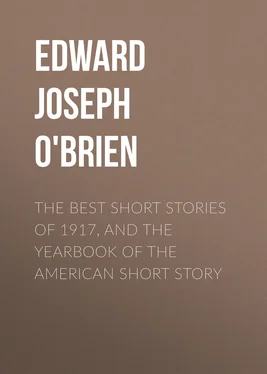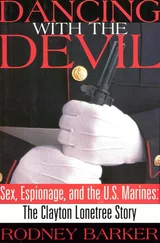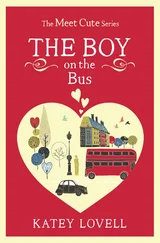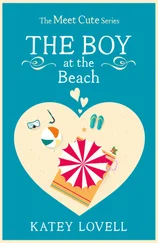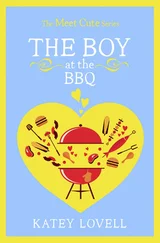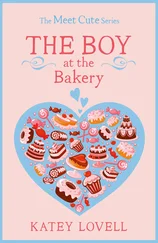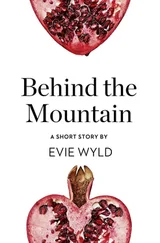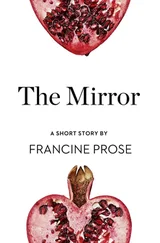Edward O'Brien - The Best Short Stories of 1917, and the Yearbook of the American Short Story
Здесь есть возможность читать онлайн «Edward O'Brien - The Best Short Stories of 1917, and the Yearbook of the American Short Story» — ознакомительный отрывок электронной книги совершенно бесплатно, а после прочтения отрывка купить полную версию. В некоторых случаях можно слушать аудио, скачать через торрент в формате fb2 и присутствует краткое содержание. Издательство: Иностранный паблик, Жанр: foreign_prose, literature_20, foreign_antique, на английском языке. Описание произведения, (предисловие) а так же отзывы посетителей доступны на портале библиотеки ЛибКат.
- Название:The Best Short Stories of 1917, and the Yearbook of the American Short Story
- Автор:
- Издательство:Иностранный паблик
- Жанр:
- Год:неизвестен
- ISBN:нет данных
- Рейтинг книги:3 / 5. Голосов: 1
-
Избранное:Добавить в избранное
- Отзывы:
-
Ваша оценка:
- 60
- 1
- 2
- 3
- 4
- 5
The Best Short Stories of 1917, and the Yearbook of the American Short Story: краткое содержание, описание и аннотация
Предлагаем к чтению аннотацию, описание, краткое содержание или предисловие (зависит от того, что написал сам автор книги «The Best Short Stories of 1917, and the Yearbook of the American Short Story»). Если вы не нашли необходимую информацию о книге — напишите в комментариях, мы постараемся отыскать её.
The Best Short Stories of 1917, and the Yearbook of the American Short Story — читать онлайн ознакомительный отрывок
Ниже представлен текст книги, разбитый по страницам. Система сохранения места последней прочитанной страницы, позволяет с удобством читать онлайн бесплатно книгу «The Best Short Stories of 1917, and the Yearbook of the American Short Story», без необходимости каждый раз заново искать на чём Вы остановились. Поставьте закладку, и сможете в любой момент перейти на страницу, на которой закончили чтение.
Интервал:
Закладка:
A night came when Abbie forgot that Old Chris had gone away. She had been sitting in her chair beside the marble-topped table, staring out into the night. All day the wind had blown; snow was piled high around the porch. Her thoughts had got back to her childhood. Somehow they had centered around the old grandfather who, years before, had sat in the same window. She saw him in his chair; heard his raspy old voice, "I married Jane sixty-eight an' a half years ago, an' a half year in a man's life is something, I'll bet you. An' I buried her thirty years ago, an' that's a long time, too. We never tore each other's shirts. Jane wanted to live a quiet life. She wanted one child, an' she was tenacious 'bout that. She never wanted any more, an' she had three, an' one of 'em was your Ma. She never wanted to be seen out with a baby in her arms, Jane didn't. I made her get bundled up once or twice, an' I hitched up the horse an' took her ridin' in my phaeton that cost two hundred dollars.—You'll be in your dotage some day, Abbie. I've been in my dotage for years now.—Oh, I altered my life to fit Jane's. I expected I had a wife to go out and see the neighbors with. By gosh! we never went across the street—I'll take on goodness some day, Abbie. By goll! that's all I'm good for to take on now.—Oh, it beat all what a boy I was. I and Mother broke our first team of oxen. When you get children, Abbie, let them raise themselves up. They'll do better at it than a poor father or mother can. I had the finest horses and the best phaeton for miles around, but you never saw a girl a-ridin' by the side of me.—Some men can't work alone, Abbie. They got to have the women around or they quit. Don't you get that kind of a man, Abbie.—Oh, she was renowned was my old mare, Kit. You never got to the end of her. She lived to be more'n thirty year, an' she raised fourteen colts. She was a darned good little thing she was. I got her for a big black mare that weighed fourteen hundred pound, an' I made 'em give me ten dollars, too, an' I got her colt with her—"
Abbie suddenly realized that she was shivering; that her feet were cold; that it was long after nine o'clock. Old Chris must have fallen asleep in his chair. She went to the dining-room door and opened it; the dining-room was dark. Why?—why, of course! Old Chris had been gone for more than three weeks. She took hold of the door to steady herself; her hands shook. How could she have forgotten? Was she going crazy? Would the loneliness come to that?
Abbie went to bed. All night she lay awake, thinking. The thoughts came of themselves. What the town had to say didn't matter after all; the town had paid her no attention for years; it was paying her no attention now. Why, then, should she live without any one to speak to? "I'll go and get Old Chris, that's what I'll do. I won't live here alone any longer." And with this decision she went to sleep.
In the morning when Abbie opened the kitchen door and stepped out onto the porch, frost lay thick upon the well pump.
She drew her shawl close around her and took hold of the pump-handle with her mittened hands. When she had filled the pail she went back into the kitchen. The sound of the wind made her shiver. To walk all the way to Mile Corners on such a day required green tea, so Abbie drank three cupfuls. Then, as on the day when she went out to call upon "the Jersey girls," she carried hot water up-stairs and got out fresh stockings.
About nine o'clock three women of Pastor Lucus's church, standing on the front steps of Aunt Alphie Newberry's house, saw Abbie struggling through a drift.
"Why, there's Abbie Snover," said Jennie Chipman.
"She's turnin' down the road to Mile Corners," added Judie Wing.
Aunt Alphie Newberry opened the door to the three women:
"Whatever's the matter to be bringin' you callin' so early?"
"Ain't you heard yet?"
"We come to tell you."
"My! my! my! What can have happened?" Aunt Alphie exclaimed.
"Old Chris died last night—"
"Just after bein' middlin' sick for a day an'—"
"An' they say," Judie Wing interrupted, "that it was 'cause Abbie Snover turned him out."
Abbie reached the end of the town sidewalk. Lifting her skirts high, she waded through the deep snow to the rough-rutted track left by the farmers' sleighs. Every little while she had to step off the road into the deep snow to let a bob-sled loaded high with hay or straw pass on its way into town. Some of the farmers recognized her; they spoke to her with kindly voices, but she made no answer. Walking was hard; Owen Frazer's farm was over the hill; there was a steep climb ahead of her. And besides, Owen Frazer's house was no place for Old Chris. No one knew anything about Owen Frazer and that woman of his; they hadn't been born in Almont. How could she have let Old Chris go down there, anyway?
"Whoa up! Hey! Better climb in, Abbie, an' ride with me. This ain't no day for walkin'. Get up here on the seat. I'll come down an' help you."
Abbie looked up at Undertaker Hopkins. In the box of his funeral wagon was a black coffin with a sprinkling of snow on its top. Abbie shook her head, but did not speak.
"Guess I shouldn't have asked you," Undertaker Hopkins apologized. "Sorry! Get along as fast as you can, Abbie. It's gettin' mighty, all-fired cold. It'll be a little sheltered when you get over the hill."
Undertaker Hopkins drove on. Abbie tried to keep her feet in the fresh track made by the runners. She reached the top of the hill. Owen Frazer's red barn stood up above the snow. Undertaker Hopkins and his funeral wagon had disappeared.
"He must have turned down the Mill Road," Abbie muttered.
She reached the gate in front of the low, one-story farmhouse. A shepherd dog barked as she went up the path. She rapped at the front door. A woman appeared at the window and pointed to the side of the house. Abbie's face expressed surprise and resentment. She backed down the steps and made her way to the back door. The woman, Owen Frazer's wife, let her into the kitchen.
"Owen! Here be Abbie Snover!"
Owen Frazer came in from the front of the house.
"Good day! Didn't expect you here. Pretty cold out, ain't it? Have a chair."
Abbie did not realize how numb the cold had made her body until she tried to sit down.
"Maggie, give her a cup of that hot tea," Owen Frazer continued. "She's been almost froze, an' I guess she'll have a cup of tea. Hey! Miss Snover?"
"I want to talk to Old Chris."
"Talk to Old Chris! Talk to Old Chris, you want to?"
Owen Frazer looked at his wife. Abbie Snover didn't know, yet she had walked all the way to Mile Corners in the cold. He couldn't understand it.
"What'd you come for, anyhow, Abbie Snover?"
"Now, Owen, you wait!" Owen Frazer's wife turned to Abbie:
"Got lonesome, did you, all by yourself in that big barn of a house?"
"I want to talk to Old Chris," Abbie repeated.
"Was you so fond of him, then?"
Abbie made no answer. Owen Frazer went over to the sink and looked out of the window at the bed-tick smoldering on the rubbish heap. Owen Frazer's wife pushed open the door of the sitting-room, then stood back and turned to Abbie:
"You may be fine old family, Abbie Snover, but we're better. You turned Old Chris out, an' now you want to talk to him. All right, talk to him if you want to. He's in the parlor. Go on in now. Talk to him if you want to—go on in!"
The animosity in Mrs. Frazer's voice shook Abbie; she was disturbed; doubt came to her for the first time. As she went through the sitting-room, fear slowed her steps. Perhaps they had turned Old Chris away from her and she would have to go back alone, to live alone, for all the remaining years of her life, in that big house.
BOYS WILL BE BOYS 5 5 Copyright, 1917, by The Curtis Publishing Company. Copyright, 1918, by Irvin S. Cobb.
Интервал:
Закладка:
Похожие книги на «The Best Short Stories of 1917, and the Yearbook of the American Short Story»
Представляем Вашему вниманию похожие книги на «The Best Short Stories of 1917, and the Yearbook of the American Short Story» списком для выбора. Мы отобрали схожую по названию и смыслу литературу в надежде предоставить читателям больше вариантов отыскать новые, интересные, ещё непрочитанные произведения.
Обсуждение, отзывы о книге «The Best Short Stories of 1917, and the Yearbook of the American Short Story» и просто собственные мнения читателей. Оставьте ваши комментарии, напишите, что Вы думаете о произведении, его смысле или главных героях. Укажите что конкретно понравилось, а что нет, и почему Вы так считаете.
